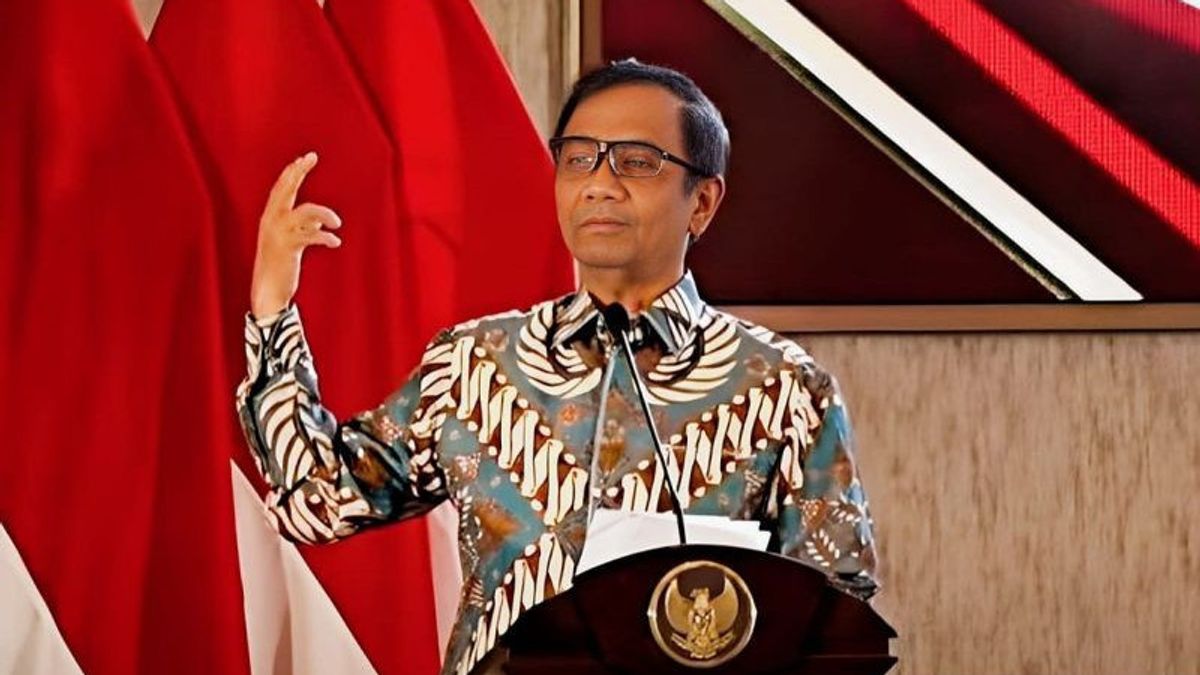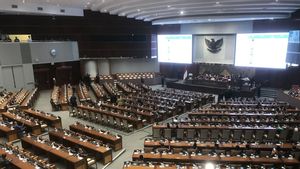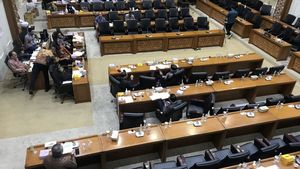
Coordinating Minister for Political, Legal and Security Affairs (Menko Polhukam) Mahfud MD said the government had sent a letter to the DPR asking that the Draft Law (RUU) on the fourth amendment to Law Number 24 of 2003 concerning the Constitutional Court (MK) not be ratified.
"Today I have coordinated with the Minister of Law and Human Rights (Minister of Law and Human Rights), I have sent a letter to the DPR, it has been delivered, it has been received by the DPR that we ask that it not be ratified through the trial, so that the government's proposal is considered," Mahfud said during a press conference at the Coordinating Minister for Political, Legal and Security Affairs Office, Jakarta, Monday, December 4, was confiscated by Antara.
Mahfud confirmed that the government had not yet approved the bill. Technically, procedurally, said Mahfud, there has been no decision on a level one meeting that the government has signed the bill with all factions in the DPR RI.
The government, said Mahfud, proposed to the DPR to first consider transitional regulations concerning the term of office and retirement age of the Constitutional Court judge.
Mahfud said the government objected to the transitional regulations proposed in the revision of the Constitutional Court Law.
At that time the government had not signed because we still objected to the transitional rules. The term of office of the Constitutional Court judge is 10 years and the maximum pension is 70 years, that's the transitional rule," he said.
관련 항목:
In this case, the government wants the term of office of the Constitutional Court judge and the retirement age to be returned to their first appointment decree (SK). "Well, we propose to stay there because it is fairer based on transitional law," he said.
Mahfud also mentioned the matter of transitional law as the basis for transitional regulations, which apply to the term of office must be profitable or at least not detrimental to the subject concerned.
"If we follow what is proposed by the DPR, it means it will harm the subject who is now a judge, so that at that time we did not agree," he said.
Mahfud also said that he had reported to the President of the Republic of Indonesia Joko Widodo about the government's position on the revision of the Constitutional Court Law.
"I have reported to the president, sir, the matter of changing the Constitutional Court's other laws has been completed, but the transitional rules regarding our age have not been clear, and we will survive so as not to harm the existing judges," he said.
Then, he alluded to universal guidelines regarding transitional law. According to him, changes in regulations that are detrimental or beneficial to certain parties do not just apply, but apply in the next period.
Even if an official raises the salary if the official who signs the salary increase (then) the official concerned gets a share, it will take effect the following year, the next period, not immediately. Especially if people are harmed. That's the argument in the transitional law," he said.
The English, Chinese, Japanese, Arabic, and French versions are automatically generated by the AI. So there may still be inaccuracies in translating, please always see Indonesian as our main language. (system supported by DigitalSiber.id)
















